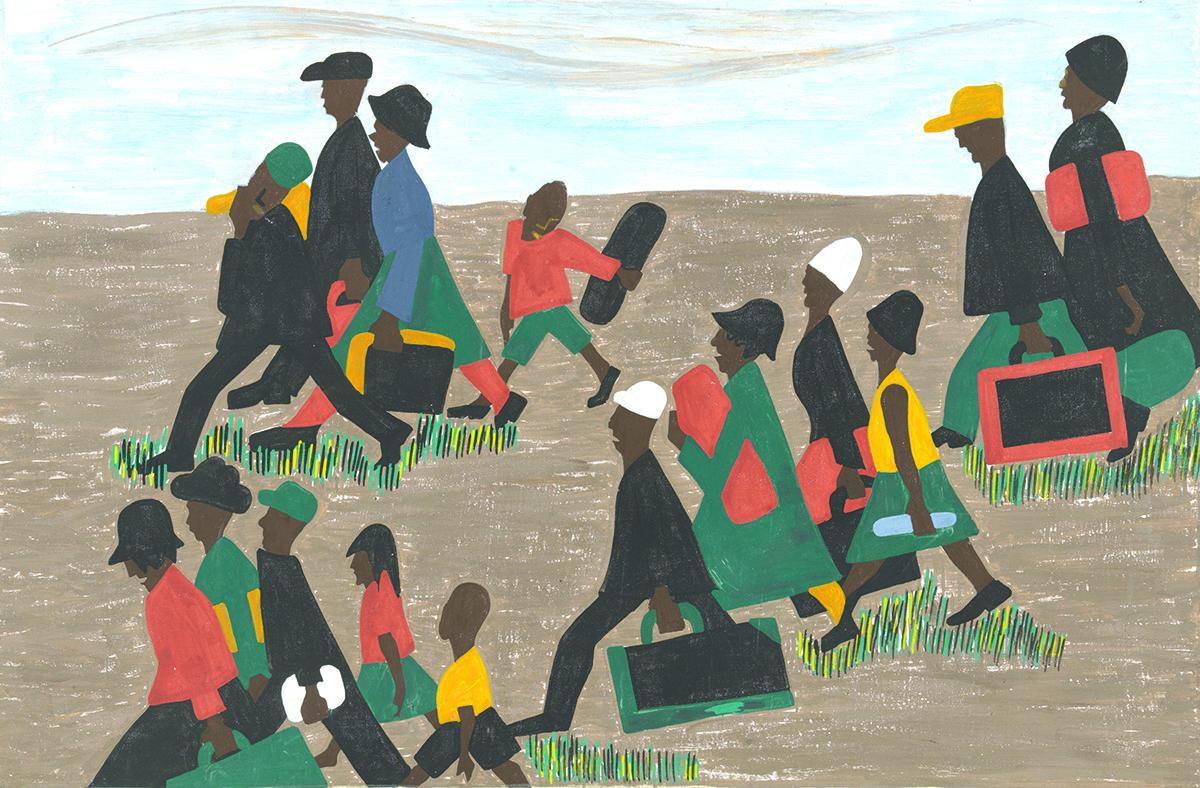The upcoming release of the Marvel movie, Black Panther, is a long overdue milestone not just for comics turn into movies, but black representation on cinema. The last black superhero to show up on movie screens was Wesley Snipes’s 1998 vampire slaying hero Blade. It was groundbreaking to see a superhero whose melanin was dark and his strength could kill blood thirsty vampire with a swing of his sword . Snipes’ Blade gave young black children someone to idolize that looked like them and made them believe the possibility of also appearing on the big screens.
On February 16th, when Black Panther releases, a new generation will witness for the first time a superhero who resembles themselves. Black Panther is a a title given to the king of Wakanda, a fictional country in Africa . The movie brings an Afrofuturism vision of what it would look like if an African country wasn’t colonized by European colonizers. Just like in actual African countries, Wakanda possesses a valuable resource called vibranium that is heavily sought after. It was used to make Wakanda the most technologically advanced society in the world.
The cast will be filled with black actors and actresses and will feature a variety of African culture in it. This type of representation is unheard of in comic book movies because the typical superhero is a white man or woman from the American cities like New York or a fictional one like Metropolis. This movie breaks down white culture’s grasp on blackness as Jamil Smith says, “films that depict a reality where whiteness isn’t the default have been ghettoized, marketed largely to audiences of color as niche entertainment, instead of as part of the mainstream”. This film is important for the next generation as it focuses on identity, incorporates black representation, shows the beauty of African culture, and invites its audience to a world that many like myself, is mesmerized by.

I agree with the overall impact of the Black Panther in terms of representation of the African, and the role of the Diaspora in, ultimately, weakening an African nation’s chance at such a reality. I think by definition, Black Panther undermines the idea of the Diaspora by claiming one country on the Continent of Africa could remain untouched by whiteness without great battles to preserve that independence, with white people specifically. These points are not at all to take away from the representation that is so vital to a diverse audience. The beauty of Afro-futurism is that it does not need to exist within a real context, and an Afro-audience would probably have some understanding of how far out the idea of Wakanda is. They would also understand, how this story reflects a parallel reality through which a member of the Diaspora may reorient their position in history, living in an uncolonized manner.
A critique I do have of the film from what I have seen is the representation of queer folk and queer love that is celebrated in Wakanda. I should say from the representation I have not seen, as one Wakandan warrior, Aneka, has been completely erased from the film. This was done intentionally as Aneka’s character was almost specified in a scene where she flirts with her partner, another warrior. This would have been another opportunity for the film to represent the real future, which is certainly inclusive of queer people of color.
I see where you’re coming from Kevante, but do you think that was intentionally done to maybe hint at the limited tolerance of queer people in some parts of the African continent? I personally did not notice it, but now that you mention it, it’s something to definitely pay attention to. Maybe they’re saving it for the sequel.
I agree, the film was amazing! It did in fact hit home with unimaginable representation of the African continent, and black history. One misconception about Black History is that it is limited to the Western world, when in reality much of the history on the African continent is also Black History. What I really appreciated about the film, aside from the action and futuristic spin, was its ability to tackle many stereotypes between the African and Black communities. It not only illudes to the divide between the two groups, it also hints at possible options to tackle this gap to maintain a way of life with limited to no White influence on the African continent.